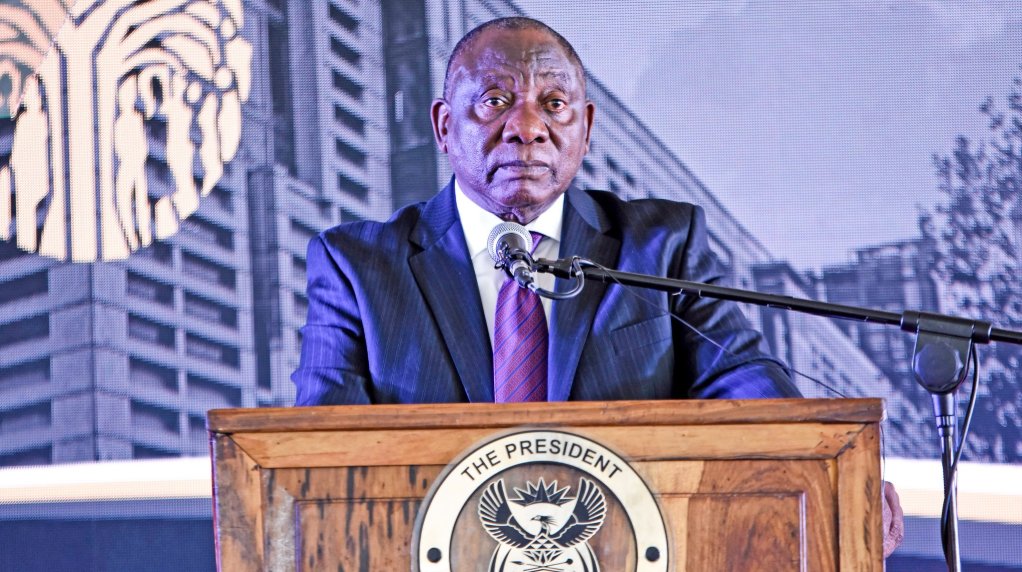President Cyril Ramaphosa on Monday stressed that Equity Equivalents are a practical broad-based black economic empowerment (BBBEE) compliance tool for multinationals operating in South Africa, asserting that government will continue to leverage them for economic growth and job creation.
Ramaphosa wrote in his weekly letter to nation that government remains resolute that empowerment laws are essential for economic transformation in South Africa and are here to stay.
“Amongst the most salient features of our country’s empowerment laws are their practicality, feasibility and responsiveness to economic conditions without deviating from the objective of redressing the economic injustices of exclusion of the past.
“The broad-based black economic empowerment legal framework applies to all companies wishing to invest in and do business in our economy, whether they are local or foreign,” Ramaphosa explained.
He pointed out that South Africa’s empowerment laws are distinct as its measures are “practical and innovative”.
He noted that in addition to having a pure equity participation measure, South Africa introduced the Equity Equivalent Investment Programme (EEIP), created to accommodate multinationals whose global practices or policies prevent them from complying with the BBBEE ownership element through the “traditional” sale of equity or shares.
He highlighted that EEIP allows multinationals to invest in socioeconomic, skills and enterprise development in South Africa without selling equity in their local subsidiaries.
Ramaphosa hit back at suggestions that the EEIP represents a circumvention of BBBEE laws and that it was a response to the conditions of a particular company or sector.
This comes as Elon Musk’s Starlink hopes to operate in South Africa. Musk has been critical of South Africa’s BBBEE laws.
Ramaphosa said all EEIP initiatives must be aligned to government’s economic policies and strategic goals, noting that there is firm government-backed oversight over EEIP programmes that must be broad-based in terms of impact.
He noted that since its inception, the EEIP has encompassed a broad range of sectors and onboarded some of the world’s leading multinational firms such as Hewlett-Packard, Samsung, JP Morgan, Amazon, IBM and automotive firms such as BMW, Volkswagen, Nissan and Toyota.
“By way of example, last year IT giant Microsoft announced a R1.32-billion investment over ten years in skills and supplier and 4IR research and development - under the EEIP.
“These firms have leveraged the EEIP to direct investment into local development, to incubate black-, youth- and women-owned businesses, and to fund skills development. This has in turn assisted government in achieving several policies and infrastructure goals,” he explained.
Ramaphosa cautioned that South Africa must move away from the perception that a choice must be made between growth and transformation, and that it must also change the mindset that compliance with BBBEE is punitive or burdensome.
He added that by supporting firms with compliance they can embrace empowerment as a meaningful investment in South African’s long-term economic stability.
“…this is a sound strategy that recognises that a transformed South African economy is one in which their investments are safe and guaranteed. Just as our economy has evolved since our BBBEE laws were first conceptualised, so has the playing field. The emergence of new industries - whether it is digital technology, advanced manufacturing, AI or renewable energy - means South Africa must actively position itself to attract greater foreign and domestic investment in these sectors or risk being left behind,” Ramaphosa said.
He urged business, industry, labour, and all of society to support these laws, which he added are integral to undoing the injustices of the past.
EMAIL THIS ARTICLE SAVE THIS ARTICLE ARTICLE ENQUIRY
To subscribe email subscriptions@creamermedia.co.za or click here
To advertise email advertising@creamermedia.co.za or click here











